Sustainable bag certifications ensure products are made responsibly – using recycled materials, organic fibers, or safe chemicals while adhering to fair labor practices. These certifications, like GRS, GOTS, FSC, OEKO-TEX, and bluesign, verify eco-conscious production and help you make informed choices. Here’s a quick overview:
- Global Recycled Standard (GRS): Focuses on recycled content and supply chain transparency.
- Global Organic Textile Standard (GOTS): Ensures organic fibers and eco-safe processing.
- Forest Stewardship Council (FSC): Verifies responsible sourcing of wood/paper components.
- OEKO-TEX Standard 100: Tests for harmful substances in textiles.
- bluesign: Covers resource efficiency, safety, and pollution control.
Certifications involve audits, documentation, and compliance checks, but they boost credibility and align with growing consumer demand for sustainable products. Ready to learn more? Let’s dive in.
FTC Green Guides Explained │ LOTM Ep. 3
Main Bag Certifications
Certifications play a crucial role in ensuring responsible practices in bag production. Below are some of the most recognized certifications, each addressing specific aspects of sustainable manufacturing and accountability.
Global Recycled Standard (GRS)
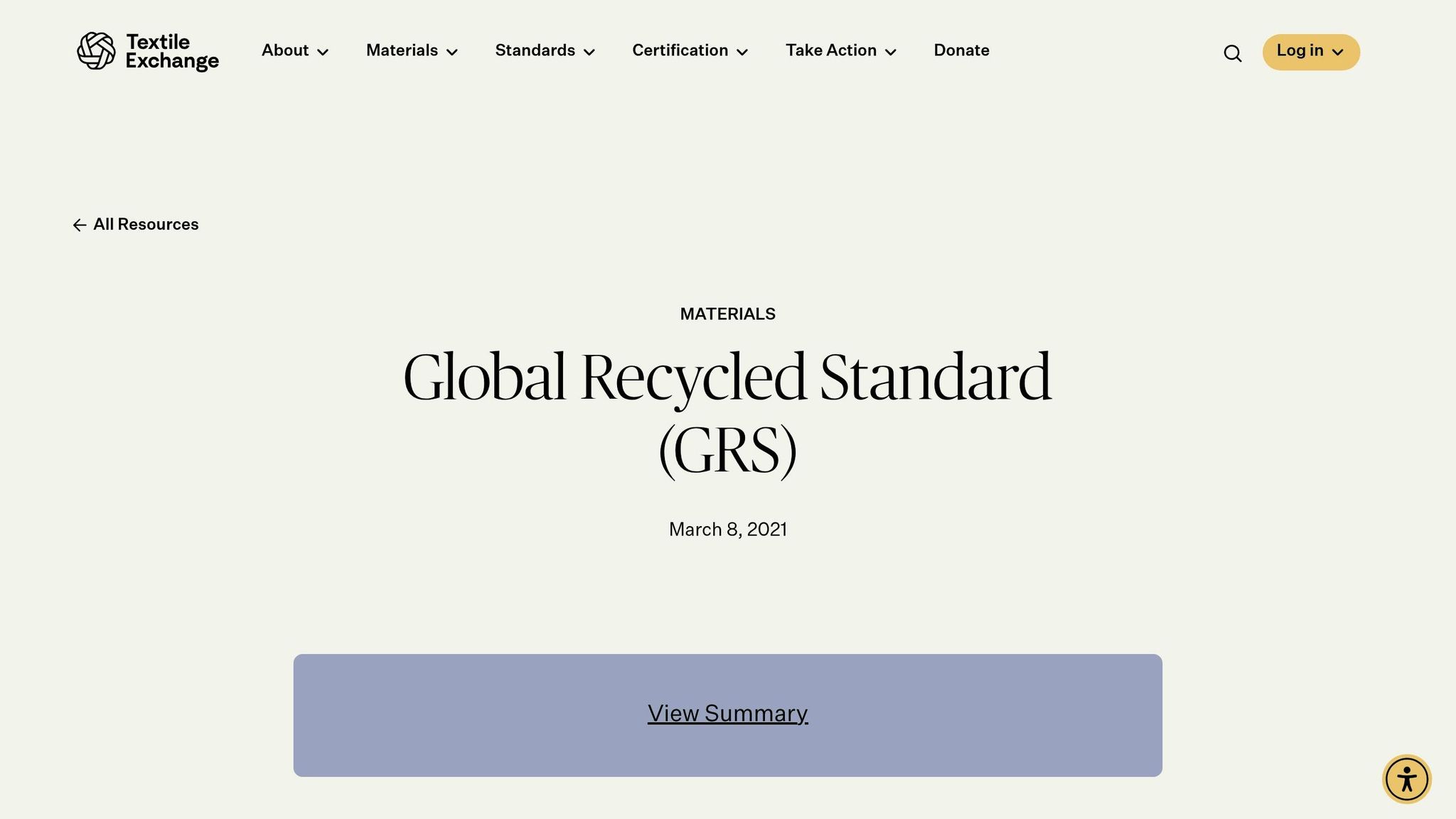
The Global Recycled Standard (GRS) certifies products containing recycled materials and tracks them from their origin to the final product. To earn this certification, products must include at least 20% recycled content. Manufacturers must also maintain detailed records of material sources and ensure traceability throughout the production process.
The GRS certification evaluates:
- Material composition and recycled content percentage
- Chemical processing methods
- Environmental management systems
- Social responsibility practices
- Supply chain transparency
Global Organic Textile Standard (GOTS)
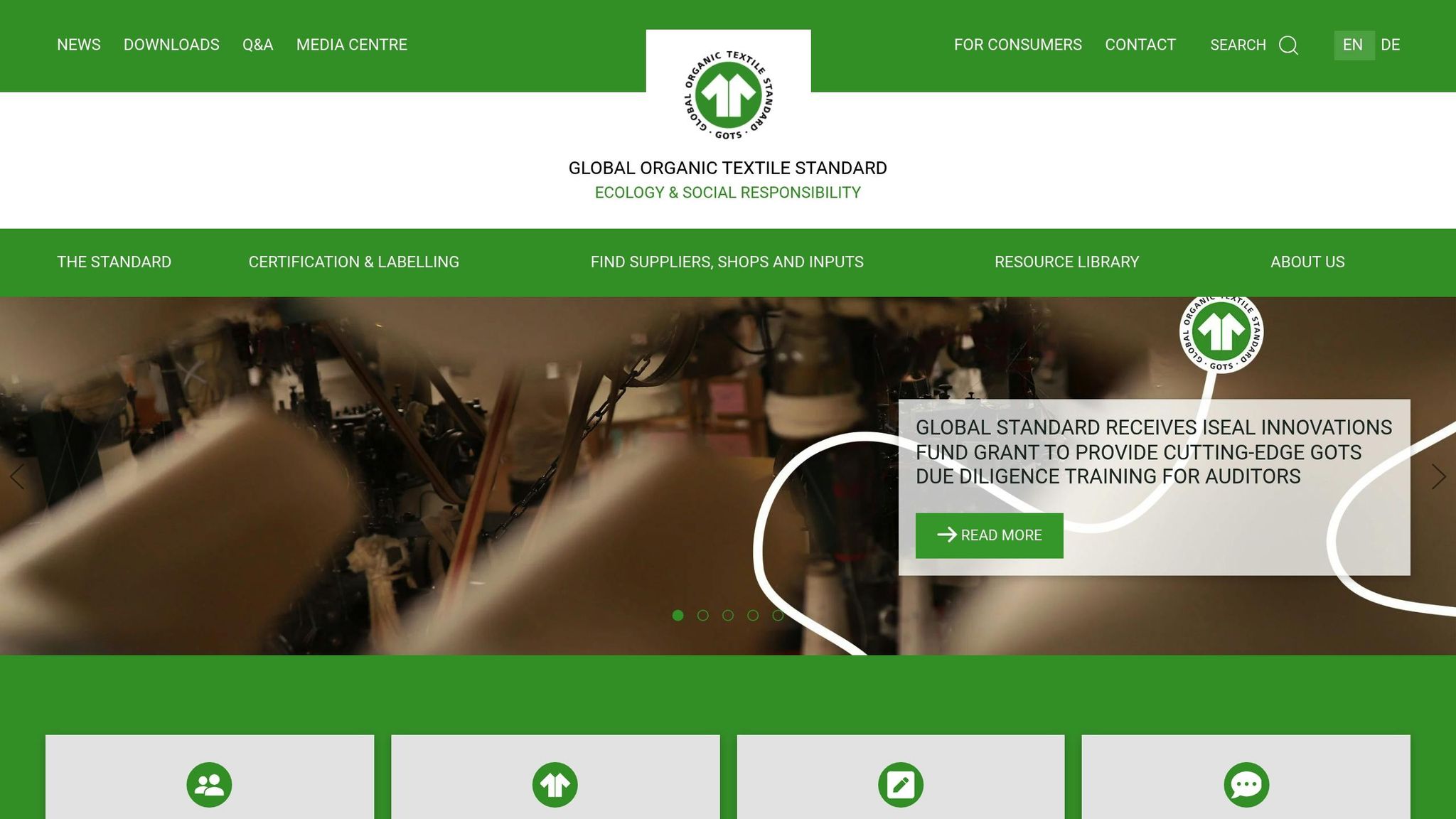
The Global Organic Textile Standard (GOTS) is the benchmark for organic textiles. It ensures that materials meet strict organic farming guidelines and are processed in an eco-friendly manner. For bag manufacturers, GOTS certification typically requires:
- At least 70% organic fiber content
- Restrictions on harmful chemicals and dyes
- Water treatment systems during production
- Adherence to fair labor standards, including child labor prohibitions
- Safe and healthy working conditions
Forest Stewardship Council (FSC)
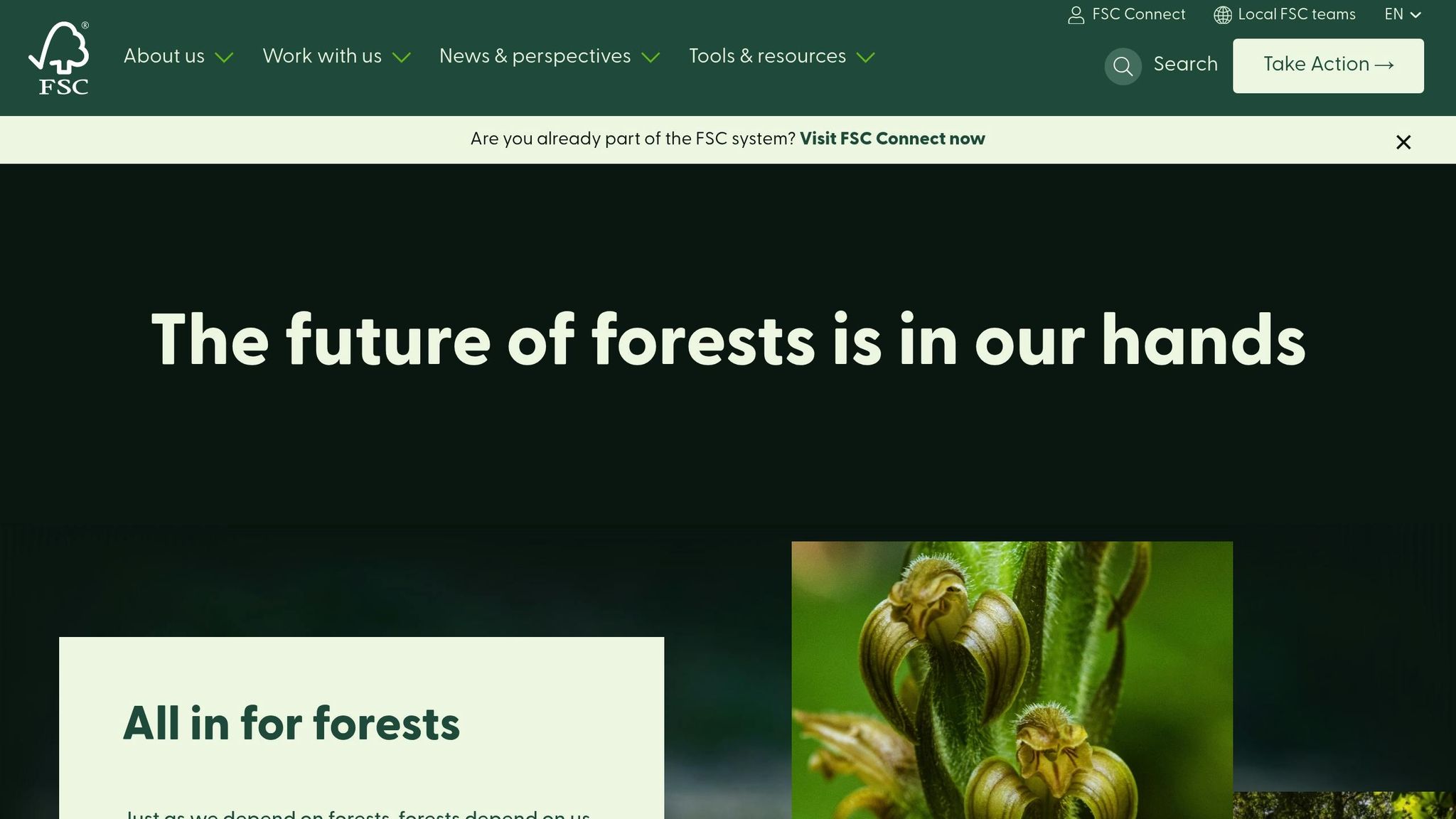
The Forest Stewardship Council (FSC) certification is for paper and wood-based components, such as packaging or structural supports in bags. It guarantees that these materials come from responsibly managed forests. Requirements include:
- Sustainable harvesting practices
- Protection of indigenous peoples’ rights
- Conservation of biodiversity
- Documentation of material origins
- Regular audits to ensure compliance
OEKO-TEX Standard 100
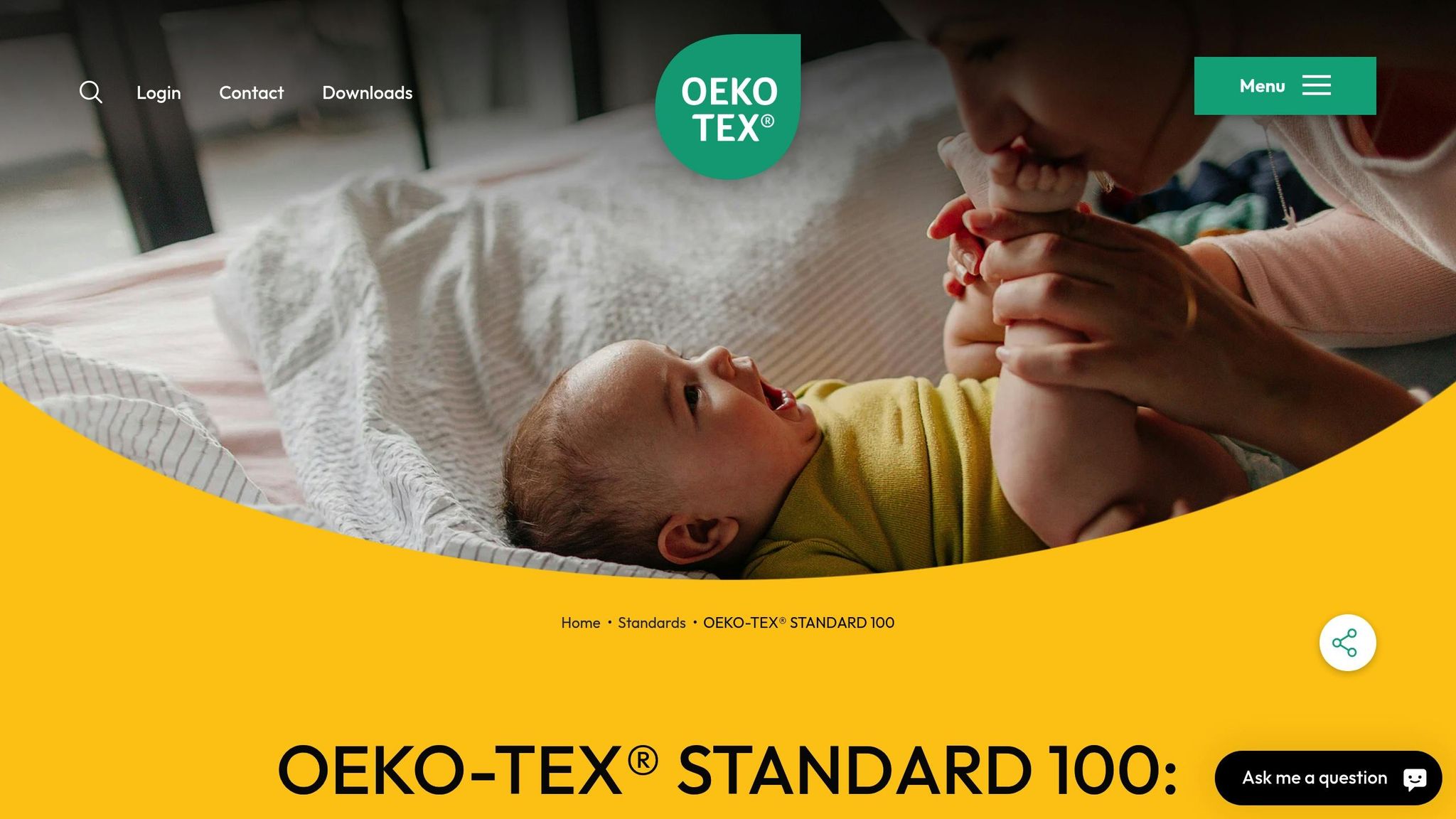
The OEKO-TEX Standard 100 focuses on ensuring chemical safety in textiles and accessories. Products are tested at every stage of production for harmful substances. These tests include:
- Banned azo dyes
- Formaldehyde levels
- Heavy metal content
- pH value compliance
bluesign Certification
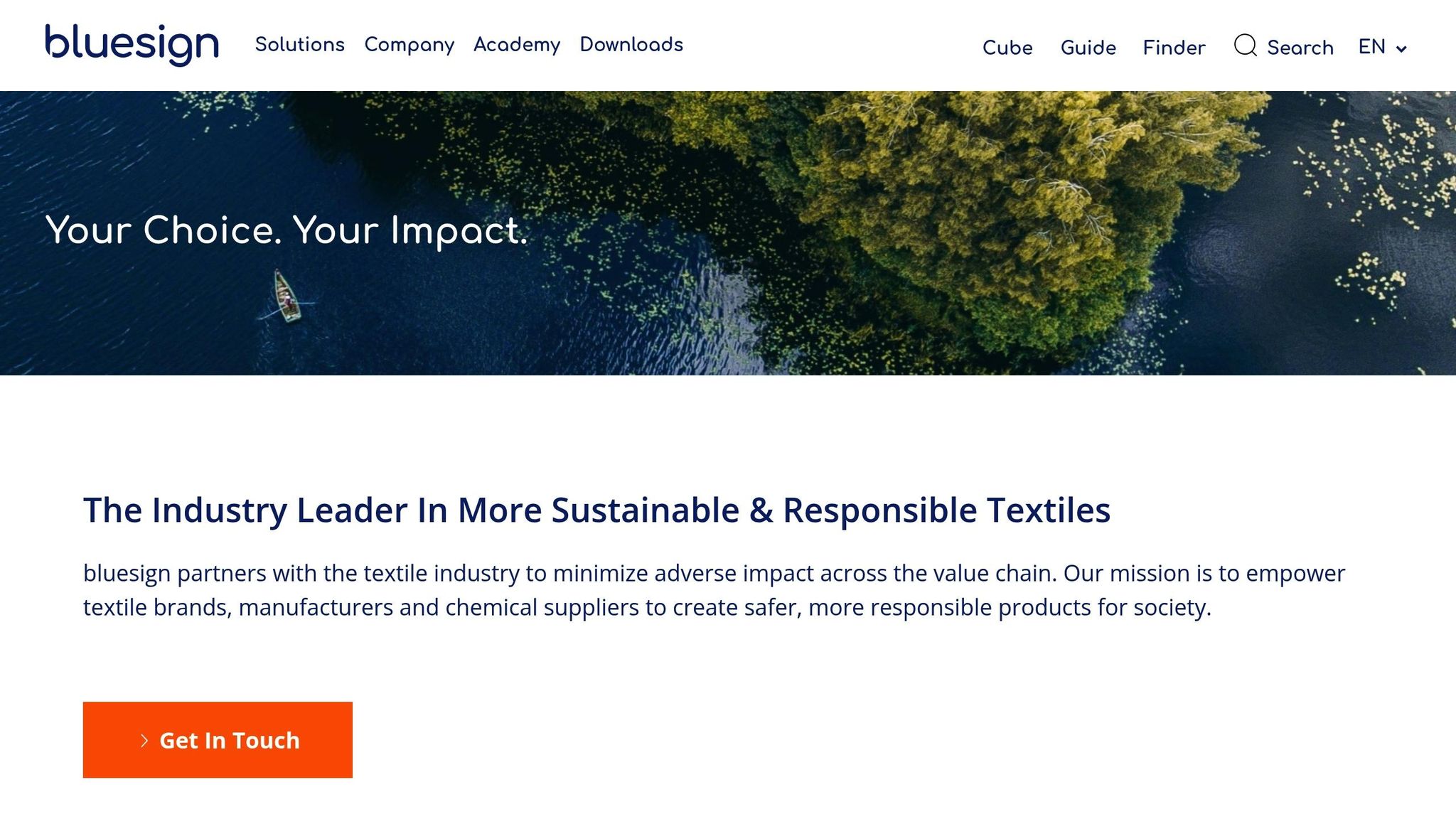
The bluesign certification takes a comprehensive approach to sustainable production, focusing on key areas such as resource efficiency, safety, and environmental impact.
| Principle | Requirements |
|---|---|
| Resource Productivity | Efficient use of raw materials and energy |
| Consumer Safety | Testing for harmful substances in products |
| Air Emissions | Reduction and control of air pollutants |
| Water Emissions | Wastewater treatment and conservation efforts |
| Occupational Health | Worker safety measures and protective equipment |
Manufacturers must demonstrate ongoing improvements in these areas to maintain their certification, with regular audits ensuring compliance.
Getting Certified
Getting certified involves careful planning and thorough documentation. Here’s a clear breakdown of what manufacturers need to know about the process.
Required Documents
The specific documents needed depend on the type of certification, but most manufacturers should prepare records in these key areas:
- Production Records: Details on material sourcing, manufacturing processes, quality control, and chemical usage.
- Supply Chain: Supplier agreements, transportation logs, storage facility documentation, and chain of custody records.
- Environmental Impact: Reports on energy use, waste management, water consumption, and emissions tracking.
- Social Compliance: Employee records, safety training materials, workplace policies, and evidence of fair labor practices.
Inspection Process
Certification inspections typically follow three main steps:
1. Pre-Assessment
Certification bodies review the submitted documents and practices, a process that usually takes 4–6 weeks.
2. On-Site Inspection
Auditors visit the facility for 2–3 days to assess production processes, material storage, quality control measures, worker safety, and environmental management systems. This step ensures the facility is set up for long-term compliance.
3. Follow-Up Verification
Auditors check that any corrective actions identified during the inspection have been addressed. This phase usually takes 2–4 weeks, depending on the scope of the improvements needed.
Keeping Certification Status
To maintain certification, manufacturers need to:
- Schedule regular audits, including annual compliance checks.
- Keep documentation updated and aligned with evolving standards.
- Improve processes, focusing on areas like sustainability.
- Train staff regularly on certification requirements.
Start the renewal process 3–6 months before your certification expires. This ensures enough time to update records, address any gaps, and meet the latest standards.
sbb-itb-1e6451b
Pros and Cons of Certification
Advantages
Certifications for sustainable bags offer several perks for manufacturers, including better environmental practices, expanded market opportunities, and increased consumer confidence.
Market Access and Consumer Confidence
- Certifications serve as proof of eco-friendly practices, giving buyers and retailers confidence in the product.
- Certified manufacturers can tap into markets where sustainability is a key requirement.
Improved Operations
- The certification process can highlight inefficiencies, leading to better workflows and less waste.
- Standardized procedures help streamline inventory and production management.
Risk Management
- Regular audits and documentation help catch compliance issues early.
- Staying aligned with evolving environmental laws ensures manufacturers remain competitive.
While these benefits are clear, getting certified isn’t without its hurdles.
Common Obstacles
The road to certification can present some notable challenges.
Financial Costs
- Certification involves upfront fees, ongoing maintenance costs, and potential investments in upgrades.
Time Requirements
- Preparing documents, training staff, and adjusting processes can take time, often delaying certification.
Technical Issues
Manufacturers often struggle with:
- Tracking material origins across the supply chain.
- Balancing strict chemical and quality standards while using sustainable materials.
- Updating waste management systems to meet certification standards.
Supply Chain Challenges
- Finding certified suppliers can limit material choices.
- Managing multiple certifications in a global supply chain adds complexity.
Manufacturers who succeed in certification typically conduct thorough gap analyses, set clear goals, assign dedicated teams, and maintain strong relationships with certification bodies. Focused staff training also plays a key role in overcoming these challenges.
What’s Next for Bag Certifications
As the demand for eco-friendly practices grows, bag manufacturers are navigating changes in certification standards. While no new certifications have been formally introduced yet, it’s crucial for custom bag suppliers to stay updated on existing eco-certification requirements and prepare for potential shifts in sustainability expectations.
To stay ahead, manufacturers should:
- Regularly review current compliance standards to ensure they meet existing requirements.
- Adapt production methods to align with potential future sustainability guidelines.
Final Thoughts
Certifications for sustainable bags are now a key part of doing business. As eco-conscious manufacturing gains traction, these certifications have become trusted markers of quality and responsibility in the bag industry.
Both companies and individual buyers increasingly seek out certified sustainable products. This growing demand has turned certification programs into strategic tools that influence purchasing decisions and market positioning.
While pursuing certification requires effort, the benefits are undeniable, including:
- Verified credibility from third-party organizations
- Easier access to markets focused on eco-friendly products
- Simplified compliance with environmental regulations
- A reduced impact on the planet
Certification standards are shaping the future of bag manufacturing. What’s optional today will likely become a baseline requirement tomorrow. Manufacturers that stay ahead by obtaining and maintaining certifications will be better prepared to meet future sustainability expectations.
JUNYUAN BAGS is fully committed to incorporating sustainable certifications into every aspect of our manufacturing process. By doing so, we ensure our bags meet strict eco-friendly standards while also supporting long-term business success. This approach positions us to adapt to global certification changes and maintain our leadership in the industry.
Proactively aligning with evolving certification standards not only reinforces environmental responsibility but also strengthens market reputation.




 Mobile/What's App/Wechat
Mobile/What's App/Wechat E-Mail
E-Mail ADD
ADD




